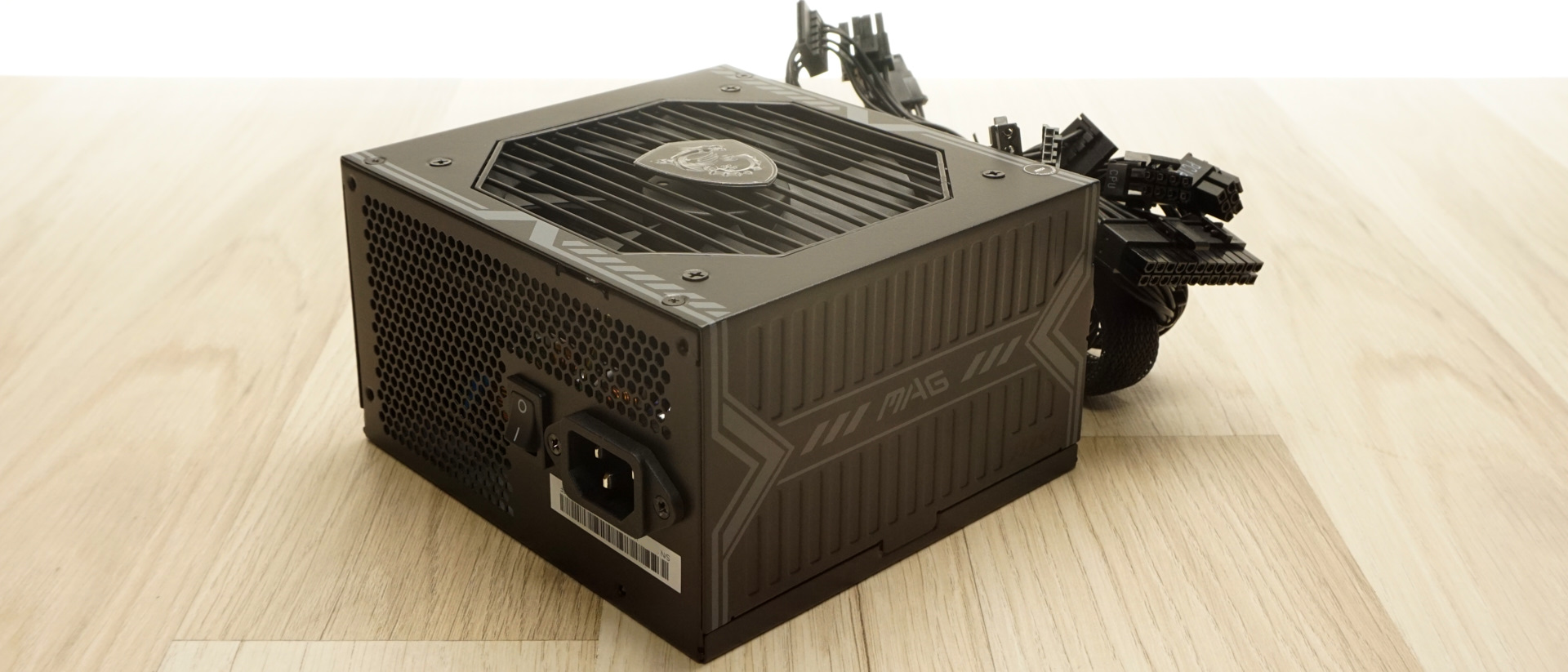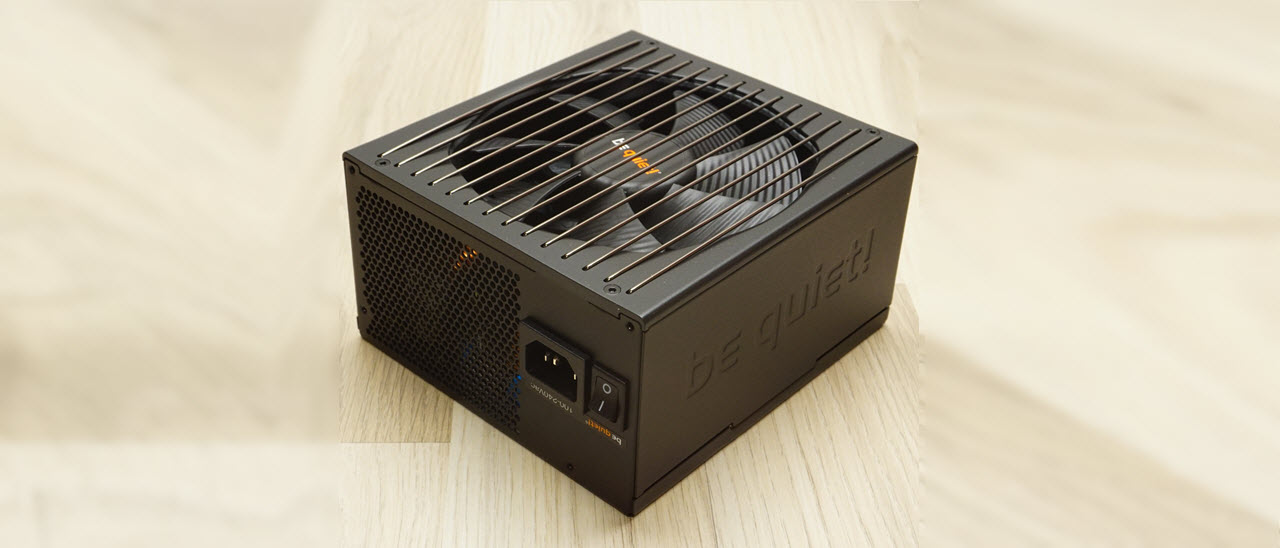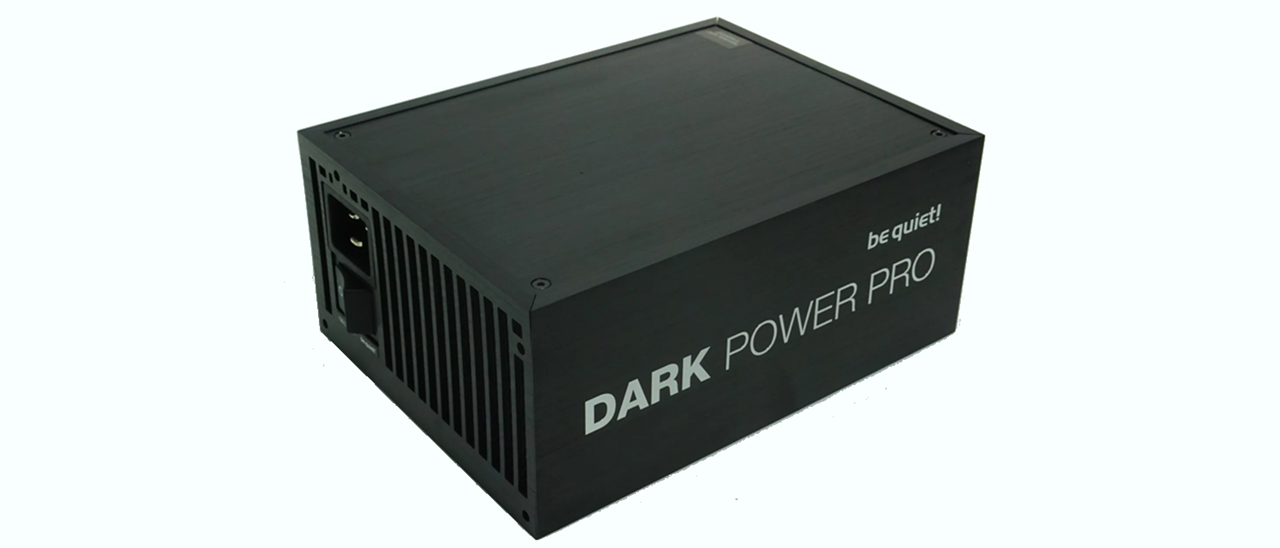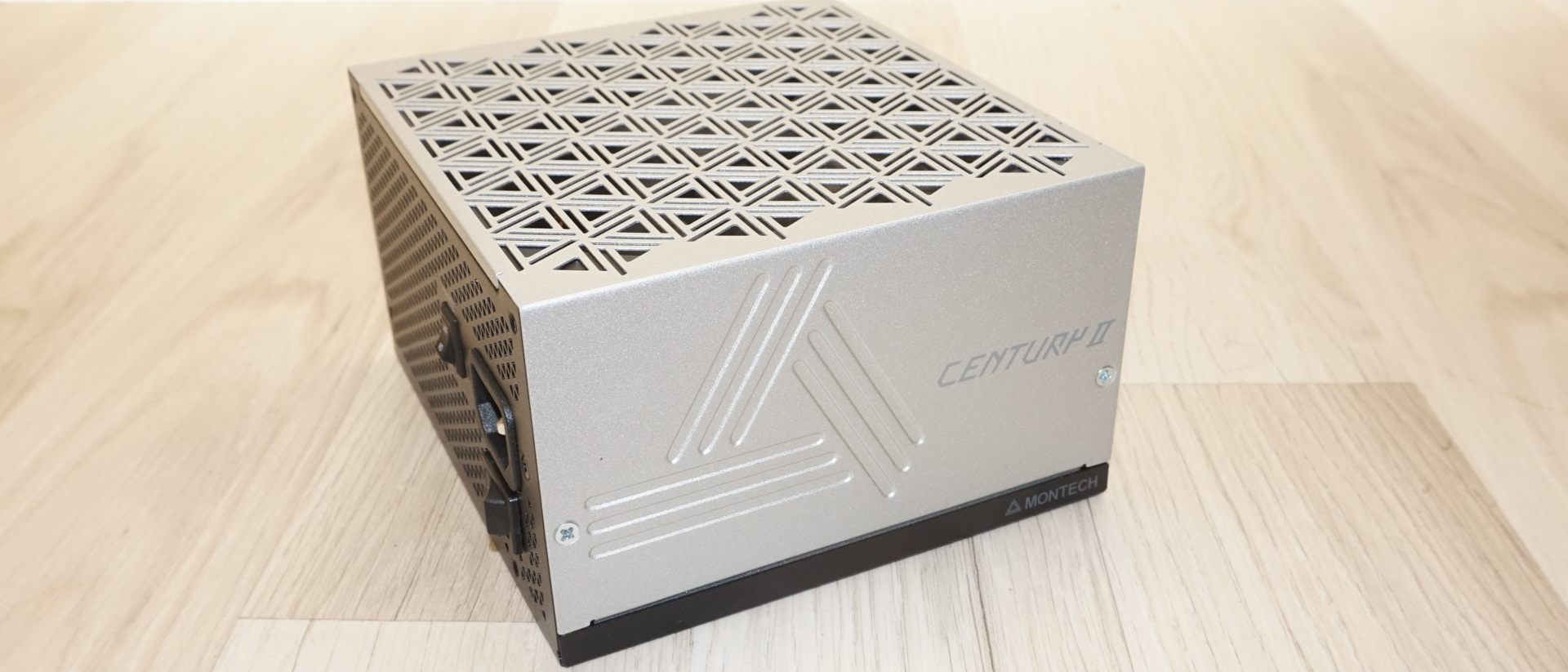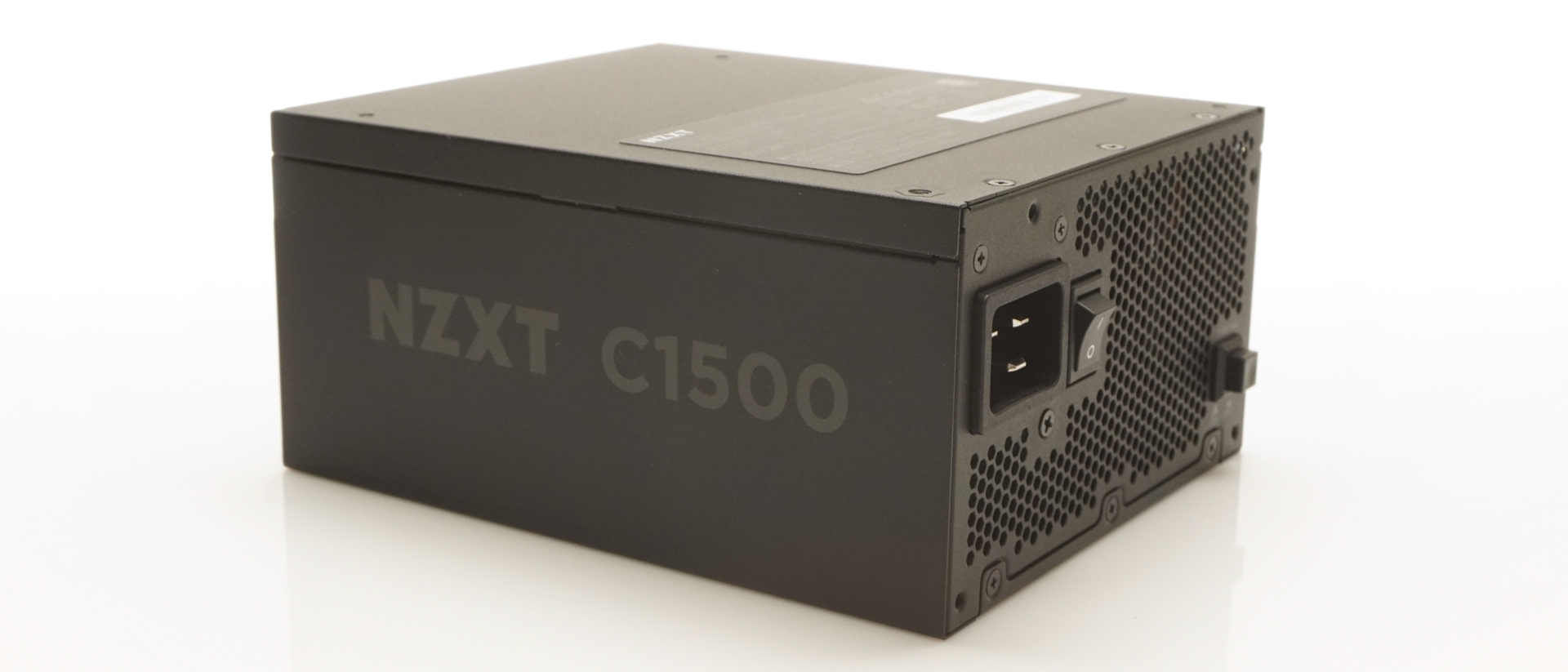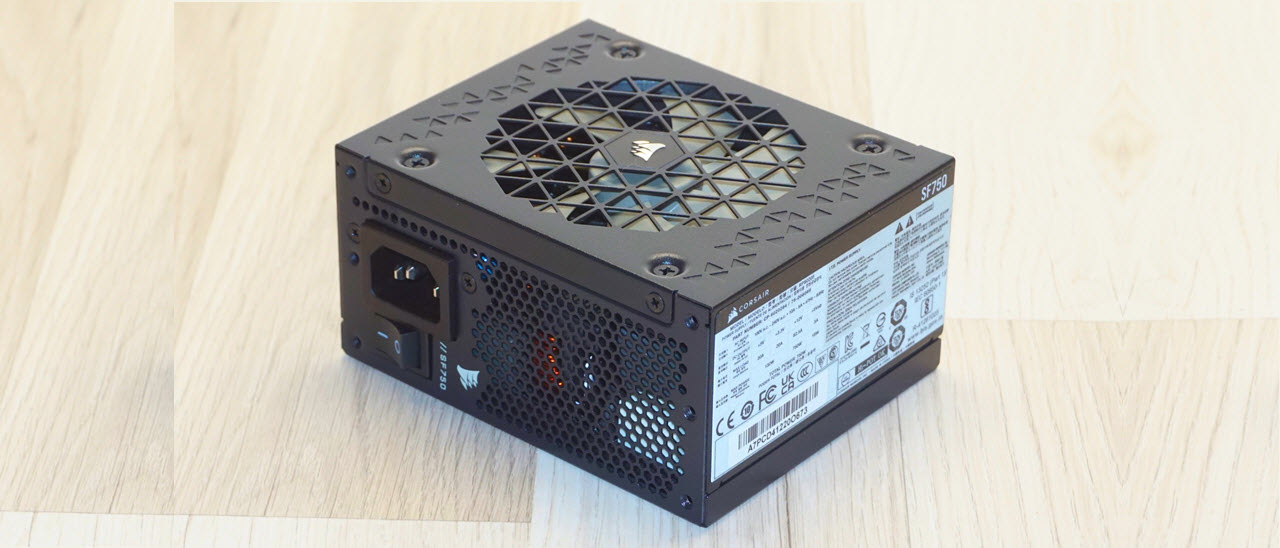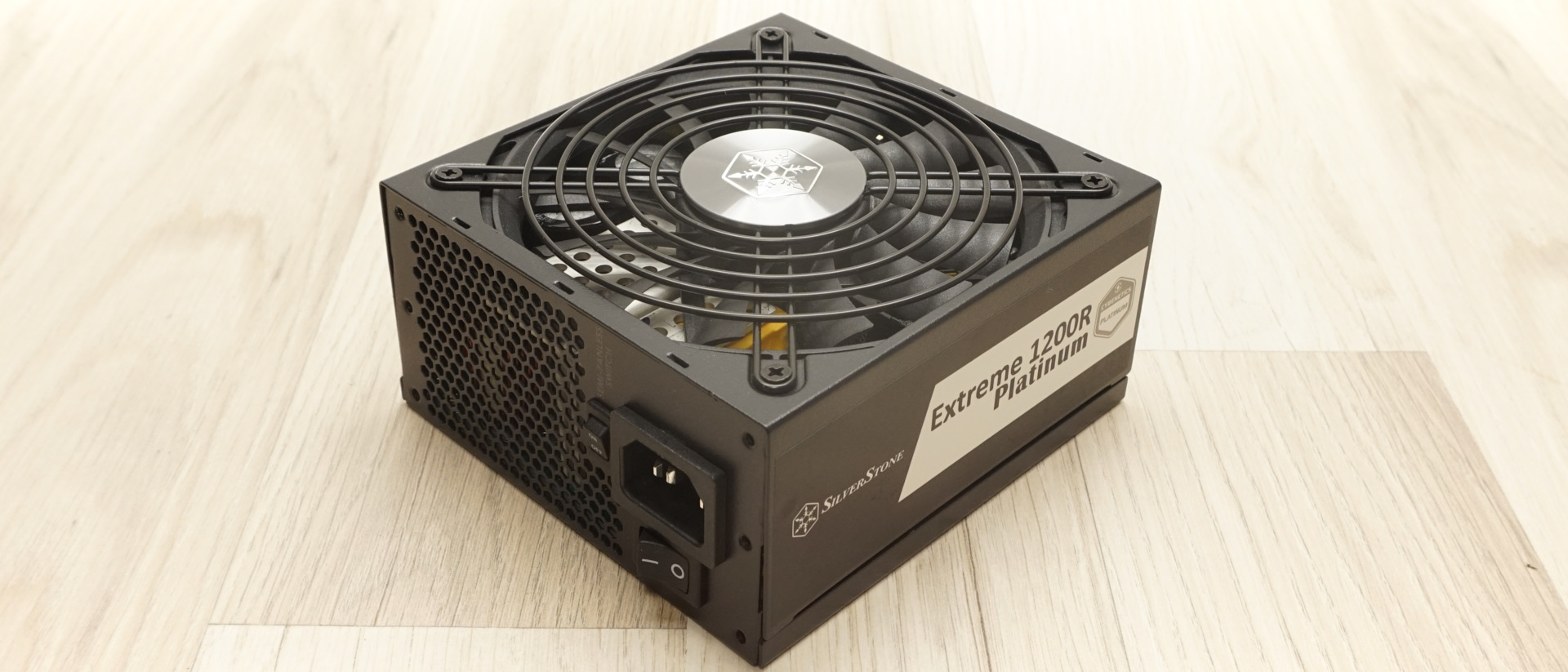Best Power Supplies 2025
These PSUs offer the best reliability, performance and protection for your system and its components.
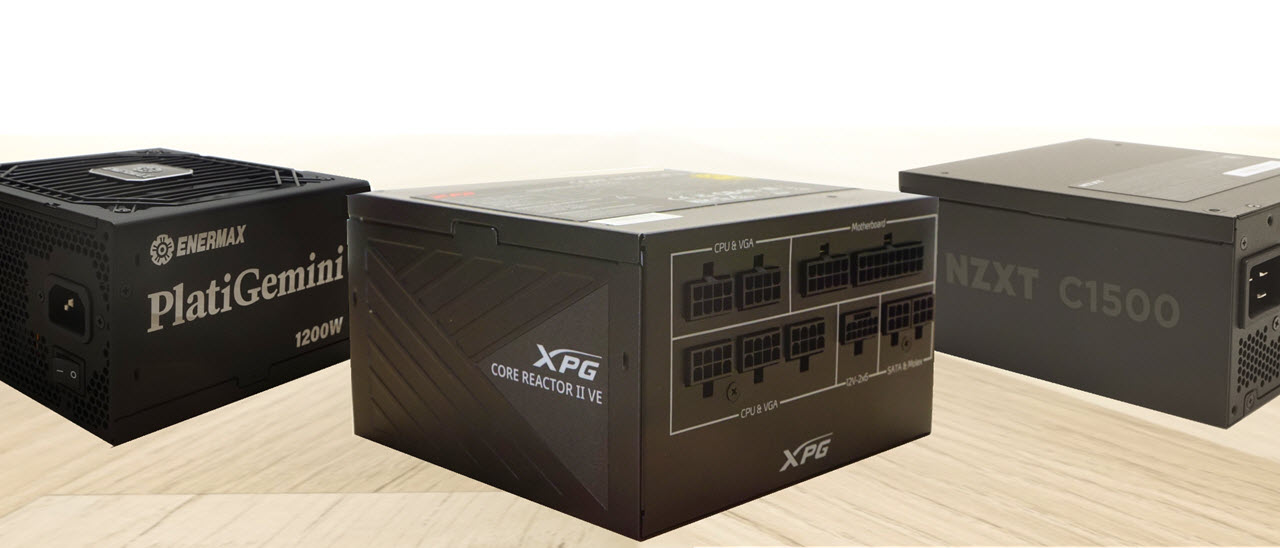
- 1. MSI MAG A550BN
- 2. be quiet! Straight Power 12
- 3. Cooler Master MWE Gold 850 V3
- 3. be quiet! Dark Power 13
- 4. Montech Century II Gold 1050W ATX 3.1
- 5. NZXT C1500 Platinum
- 6. Seasonic Prime TX-1600
- 7. Corsair SF750 (2024) SFX PSU
- 8. SilverStone Technology Extreme 1200R Platinum
- Shopping Tips
- How we test
When you are building a PC, the Power Supply Unit (PSU) is not usually the component you daydream about. It is not as sexy as a top-tier GPU or as flashy as RGB parts. But think of the PSU as the heart of your system. Just as a weak heart limits the body, a subpar PSU limits (and endangers) your rig. Its job is deceptively simple: convert the volatile High-Voltage Alternating Current (AC) from your wall outlet into stable Direct Current (DC) for your components. However, doing this reliably is what separates a long-lasting PC from a fire hazard.
Choosing the right unit involves a mix of hard math and personal preference.
Strictly speaking, wattage matters, but the Efficiency Curve is paramount. We recommend aiming for a unit that operates near 50% load for optimal thermal performance and longevity. It is also vital to look beyond basic efficiency ratings and examine our power quality measurements, which reveal how stable and 'clean' the voltage output truly is. On the subjective side, design plays a major role. For a streamlined chassis, look for fully modular units that eliminate cable clutter and improve airflow. Remember that units with similar price-to-performance ratios can feature vastly different industrial designs, so pick one that matches your build’s theme.
If you take away only one thing, let it be this: Never cheap out on protection.
A high-quality PSU does more than just push power; it acts as a firewall between the grid and your expensive hardware. If a PSU lacks a comprehensive protection suite, it is not just a bad purchase – it is a liability.
The Best Power Supplies You Can Buy Today
Why you can trust Tom's Hardware
Best Cheap PSU ($60 or less)
Specifications
Reasons to buy
Reasons to avoid
The MSI MAG A550BN is a solid power supply unit (PSU) built on a reliable, though dated, CWT platform. It delivers dependable performance with decent quality components, ensuring stability and longevity for your system. Certified 80Plus Bronze, this PSU provides passable efficiency without breaking the bank. While it lacks modularity, the sleek design adds an aesthetic edge to your build. Most importantly, it includes all essential protections such as OVP, OCP, OPP, and SCP, safeguarding your hardware. Priced at just $50, it is a great choice for budget-conscious users building low-cost workstations or entry-level gaming setups.
MORE: MSI MAG A550BN PSU Review
Up to 750 Watts
Specifications
Reasons to buy
Reasons to avoid
The Be quiet! Pure Power 12 M 750W PSU offers a reliable and well-constructed power supply option with an emphasis on stability, solid performance, and long-term durability, thanks to its dependable HEC/Compucase design and 10-year warranty. It features stable voltage regulation and effective ripple control, meeting its 80Plus Gold rating without exceeding it. The unit balances low noise levels during typical use, but under heavier loads, its acoustics worsen, reflecting a trade-off between quiet operation and thermal management.
MORE: Be Quiet Straight Power 12 750W PSU Review
Up to 850 Watts
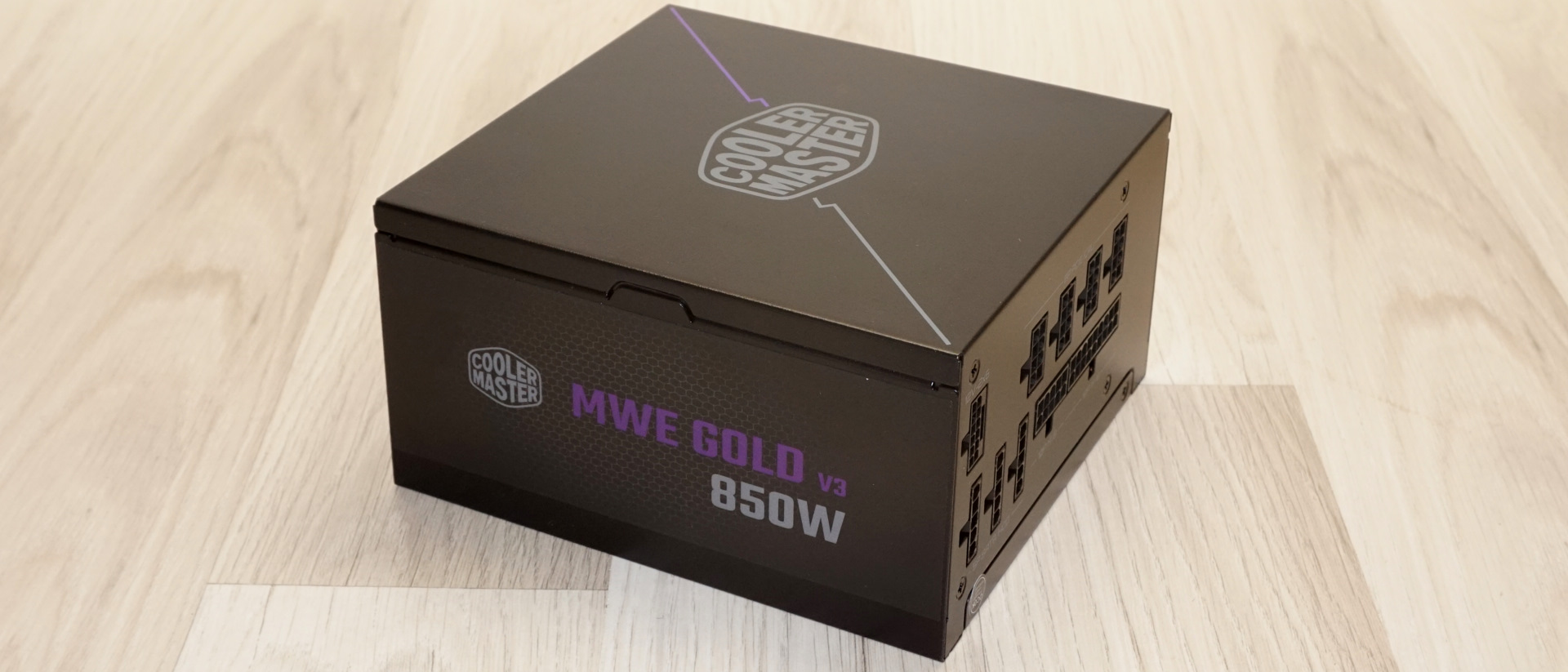
Specifications
Reasons to buy
Reasons to avoid
The Cooler Master MWE Gold 850 V3 is a reliable, competitively priced 850 watts PSU that is ATX 3.1 / PCIe 5.1 compliant and comes with a 10-year manufacturer’s warranty. Its efficiency is thrice-certified (80Plus Gold, PPLP.info Gold, and Cybenetics Platinum), with the Cooler Master MWE Gold 850 V3 displaying outstanding low-to-mid range efficiency under typical operating conditions. It is built by LITEON, one of the most experienced OEMs, and is a great solution for users who want a great all-around performer at a reasonable price without breaking the bank.
Read: Cooler Master MWE Gold 850 V3 review
Up to 1000 Watts
Specifications
Reasons to buy
Reasons to avoid
The be quiet! Dark Power 13 1000W PSU is a premium offering built on an excellent FSP platform, delivering top-tier performance and efficiency. Both CLEAResult and Cybenetics certify it as Titanium, showcasing its exceptional electrical efficiency. This PSU excels in power quality, ensuring stable and clean output while maintaining impressively low noise levels under any load. Priced at $270, it is a solid deal for a 1000W Titanium-certified unit, but with frequent discounts dropping it to $220, it becomes unbeatable in its class, making it a top choice for high-performance gaming or workstation builds.
MORE: be quiet! Dark Power 13 1300W Review
Up to 1200 Watts
Specifications
Reasons to buy
Reasons to avoid
The Montech Century II Gold 1050W PSU is a well-engineered power supply designed for mainstream gaming and enthusiast PCs. Priced at just $110, it offers impressive value with quality components from manufacturers like Nippon Chemi-Con, Rubycon, and Toshin Kogyo, and comes with a comprehensive 10-year warranty. It meets ATX 3.1 standards, delivering solid efficiency with 80Plus Gold certification, achieving 90.3% average efficiency at 115 VAC and 91.1% at 230 VAC. The PSU runs silently under moderate loads thanks to its hybrid fan mode, though the triangle-centered fan grid may cause aerodynamic turbulence at higher speeds. While its single 12V-2x6 connector and shared PCIe cables may limit expansion, its excellent power quality, thermal performance, and exceptional pricing make it an outstanding choice for budget-conscious builders seeking reliable power for high-performance systems.
MORE: Montech Century II Gold 1050W ATX 3.1 power supply review
1250-1500 Watts
Specifications
Reasons to buy
Reasons to avoid
The NZXT C1500 Platinum is a powerhouse designed for serious PC enthusiasts building ultra-high-performance systems. With 1500W of capacity and dual 12VHPWR connectors, it is ideal for setups running multiple GPUs. This PSU hits the sweet spot for efficiency, with 80Plus Platinum certification, delivering an impressive 92.6% efficiency at 115V and up to 93.7% at 230V. Its "Zero-Fan" mode keeps the fan completely off at up to 50% load, making it virtually silent under typical gaming conditions. When tested under heavy load, the C1500 remains reliable, handling heat with ease, making it perfect for gamers pushing their systems to the max. Priced at $370, this PSU is a viable top-tier option for enthusiasts running high-end gaming rigs with dual GPUs, offering great performance without an unreasonably high price tag.
Read: NZXT C1500 Platinum Review
>1600 Watts
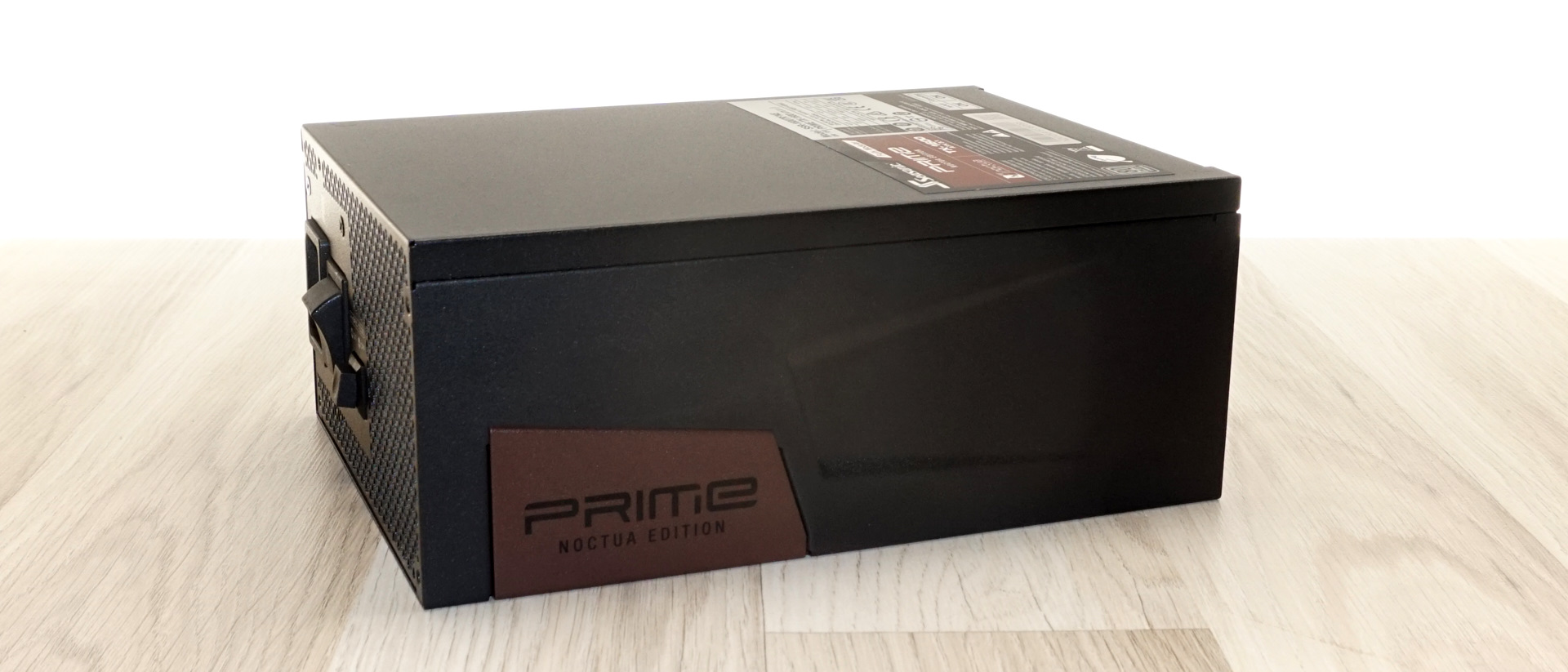
Specifications
Reasons to buy
Reasons to avoid
The Seasonic Prime TX-1600 Noctua Edition is a flagship 1600-watt power supply unit designed for extreme performance and reliability. A collaboration between Seasonic and Noctua, this power supply unit (PSU) combines cutting-edge power delivery with advanced cooling technology. It complies with ATX 3.1 and PCIe 5.1 standards, ensuring compatibility with the latest high-demand systems and hardware. The Seasonic Prime TX-1600 Noctua Edition excels in efficiency, meeting the requirements for both 80Plus Titanium and Cybenetics Titanium certifications, while offering overall performance that sets the industry benchmarks. Priced at $570, it targets professional users and enthusiasts who prioritize top-tier performance and quality.
MORE: Seasonic Prime TX-1600 Noctua Edition Review
SFX PSU <800 Watts
Specifications
Reasons to buy
Reasons to avoid
The Corsair SF750 Platinum (2024) is a high-performance SFX power supply, designed for compact builds that demand high performance. It is based on a refined version of the Great Wall platform that its predecessor used, now updated to meet the ATX 3.1 standard. It delivers cutting-edge power efficiency and reliability in its class. Corsair uses premium components, including all-Japanese capacitors, ensuring durability and performance. Certified by both Cybenetics and CLEAResult with Platinum efficiency, the SF750 delivers outstanding electrical performance. Despite its small form factor, it also maintains an excellent thermal-to-acoustic balance, running quietly under typical loads. At $170, it is a steep investment, but a necessary one for gamers seeking a high-performance, ATX 3.1-compliant SFX PSU. Perfect for compact gaming builds.
MORE: Corsair SF750 Platinum (2024) Review
SFX PSU >800 Watts
Specifications
Reasons to buy
Reasons to avoid
The SilverStone Technology Extreme 1200R Platinum SFX-L PSU is a powerhouse tailored for PC enthusiasts seeking top-tier performance in a compact form factor. Built on the robust Enhance platform, it adheres to the ATX 3.1 and SFX12V 4.1 standards, ensuring compatibility and reliability. This unit boasts high-quality components that enable it to deliver its full 1200W capacity continuously at an impressive ambient temperature of 50°C. With Cybenetics and CLEAResult certifications both affirming its Platinum efficiency, the Extreme 1200R excels in electrical performance. Moreover, its thermal-to-acoustics balance is commendable for a unit of such compact dimensions, making it a solid choice for those prioritizing silence without compromising power. While the $330 price tag is steep, it represents the investment required for those determined to secure the best SFX-L power supply on the market.
MORE: SilverStone Technology Extreme 1200R Platinum Review
Quick Power Supply Shopping Tips
Quick Power Supply Shopping Tips
Key Factor: Correct sizing. First and foremost, it is crucial to understand a system's power consumption, especially if future upgrades are planned. Modern PSUs operate most efficiently at around half their rated capacity, and contrary to popular belief, purchasing a higher-wattage PSU does not guarantee better performance. Efficiency drops significantly at low loads, particularly below 15%, with only the 80Plus Titanium certification requiring 90% efficiency at 10% load. While Cybenetics provides light-load efficiency data, this is not factored into its certification, which averages efficiency between 10% and 100% load. Therefore, an oversized PSU may result in poorer performance than a properly sized unit, often at a lower cost.
Avoiding Overestimation. The most common mistake in PSU selection is overestimating power needs. Builders often recommend 1000 W PSUs for systems with mid-to-high-end GPUs, though most systems with a mainstream CPU and a single GPU rarely exceed 550W. For example, a modern mid-range system with an AMD Ryzen processor and an AMD RX 7600 or NVIDIA RTX 4060 typically consumes no more than 350W under load. Even a high-end setup with an Intel Core i9-14900K and NVIDIA RTX 4090 usually peaks at 800W, yet many users still choose oversized PSUs.
Several reputable manufacturers and e-tailers offer PSU calculators to help estimate power needs, including:
- Cooler Master Power Calculator
- Seasonic Wattage Calculator
- MSI PSU Calculator
- be quiet! PSU Calculator
- Newegg PSU Calculator
While PSU calculators are useful, they rely on thermal design power (TDP), which often overestimates real-world power needs. Considering that the unit should operate at roughly half capacity, choosing a PSU based on these recommendations is not wrong; however, many users mistakenly opt for much higher wattages, leading to oversized, expensive units that cannot perform optimally.
ATX v3.0 / ATX v3.1 Compliance. The ATX v3.1 specification, introduced on September 13, 2023, quickly followed ATX v3.0 (released in February 2022) to address issues with the 12VHPWR connector and alleviate some testing procedures. The key update is the transition from the 12VHPWR connector to the 12V-2×6 connector, which features shorter sense pins that reduce the risk of overheating by ensuring proper cable connection before power delivery. However, this change only affects the connector on the device’s side. PSU manufacturers face minimal changes with ATX v3.1, as the physical cable remains the same, and many have simply rebranded their ATX v3.0 units. Full compliance requires integrating the 12V-2×6 connector on the PSU side, though the risk of overheating there is low. The rest of the ATX v3.1 updates primarily affect motherboard manufacturers or is meant to improve testing accessibility. From a PSU’s manufacturer point of view, the ATX v3.1 standard imposes less stringent requirements than its predecessor, meaning that PSUs certified under ATX v3.0 specifications are, by default, of a higher standard. When selecting a PSU, users should not discard ATX v3.0 designs as outdated or older. Users also need to be aware that ATX v3.0/v3.1 compliance does not necessitate the presence of a 12+4 PCI Express connector and there are several products in the market that do not have it at all.
Physical Considerations. Ensure that the PSU's physical dimensions are compatible with your case. Standard ATX cases will typically accommodate ATX-compliant PSUs, but some units may exceed the typical length of 5.5 inches. If you have a compact case, such as one that supports SFX power supplies, ensure that your chosen PSU fits accordingly.
For more on this subject, see our A Basic Guide To Motherboard, Case, and Power Supply Form Factors feature.
How we test Power Supplies
How we test Power Supplies
Effective power supply testing demands specialized equipment and precise methodology. It's not enough to connect a PSU to a PC and measure voltage with a basic multimeter. Professional testing requires programmable electronic loads, high-spec oscilloscopes, and detailed technical knowledge. Moreover, knowledge of the correct loading and testing protocols is essential, as these processes are governed by well-documented procedures detailed in technical papers and guides.
Programmable DC loads are essential for accurate testing. We use two Maynuo M9714 and two M9711 loads, capable of drawing 2400 Watts from 12 V line and 150 Watts from 3.3 V and 5 V lines respectively.
When assessing power supply performance, even the best multimeters are inadequate. An oscilloscope is indispensable, but not just any oscilloscope. The Intel ATX design guide specifies a minimum bandwidth of 20 MHz but, practically, digital oscilloscopes must be able to sample data at a rate at least ten times higher than the frequency being measured, meaning a 20 MHz oscilloscope should have a sampling rate of at least 200 MSa/s. Low-end oscilloscopes, particularly those that are USB-connected, simply cannot meet this requirement. In our testing setup, we employ a Rigol DS5042M oscilloscope with a bandwidth of 40 MHz and a real-time sampling rate of 500 MSa/s. While these specifications may seem impressive, even this instrument has limitations, such as automatically resolving the noise out of the ripple of a signal.
Efficiency testing, while simpler, still requires precision. Our programmable loads provide real-time power draw data, and we use an Extech 380803 power analyzer to measure true RMS values from the AC outlet. Testing is conducted at both 230V/50Hz and 115V/50Hz, with input voltage managed by a 3000VA Variac. It is crucial to use an analyzer capable of displaying true RMS values, as power supplies generate significant harmonic distortion.
Thermal and noise testing are more complex. Thermal testing is relatively simple, requiring only two high-precision UNI-T UT-325 digital thermometers with four probes to monitor ambient, exhaust, and heatsink temperatures. Noise testing, however, cannot be conducted during PSU operation due to the interference from testing equipment. Instead, we isolate the fan’s noise using a laser tachometer and test it separately with an adjustable DC power supply. Noise levels are recorded with an Extech HD600, in a quiet environment with a baseline noise of 30.4 dB(A).
We also developed a custom test fixture and hot box for more controlled testing. The hot box is a simple enclosure with an air-heating device that simulates real-world conditions by heating the air, not the box, allowing for testing at room temperature (25°C) and elevated temperatures (45°C). It is worth noting that efficiency certifications, such as 80Plus, are performed at room temperature, and a PSU may fail to meet its certification standards under elevated temperatures.
Efficiency certifications themselves follow different protocols. The CLEAResult 80Plus certification tests efficiency at specific load intervals (20%, 50%, and 100%), while the Cybenetics certification takes into account the average efficiency from 10% to 100% load. Our testing provides efficiency data from 5% to 100% load, as well as the average efficiency of a unit between 20% and 100% load. We chose to include 5% load testing as modern systems have their energy demands dropping dramatically while idling, which typically land at 5% to 10% capacity of a properly sized PSU. The conversion efficiency of switching power supplies drops significantly at very low loads, with drops exceeding 10% being common in many designs.
In conclusion, effective power supply testing requires precision instruments, a comprehensive understanding of testing methodologies, and carefully controlled conditions. Only by adhering to these standards can we obtain accurate data on PSU performance, efficiency, thermal behavior, and noise characteristics.
Finding Discounts on the Best Power Supplies
Whether you're shopping for one of the best power supplies or just looking for an affordable alternative, you may find savings by checking out our lists of the latest Corsair coupon codes, Newegg promo codes and Micro Center coupons.
Get Tom's Hardware's best news and in-depth reviews, straight to your inbox.

Dr. E. Fylladitakis has been passionate about PCs since the 8088 era, beginning his PC gaming journey with classics like Metal Mutant and Battle Chess. Not long after, he built his first PC, a 486, and has been an enthusiast ever since. In the early 2000’s, he delved deeply into overclocking Duron and Pentium 4 processors, liquid cooling, and phase-change cooling technologies. While he has an extensive and broad engineering education, Dr. Fylladitakis specializes in electrical and energy engineering, with numerous articles published in scientific journals, some contributing to novel cooling technologies and power electronics. He has been a hardware reviewer at AnandTech for nearly a decade. Outside of his professional pursuits, he enjoys immersing himself in a good philosophy book and unwinding through PC games.
- Aris MpitziopoulosContributing Editor
-
abryant Archived comments are found here: http://www.tomshardware.com/forum/id-3694061/psus.htmlReply -
DVJ Rick Kraft Now many motherboards require 8pin+4pin CPU power, and some even require 8pin+8pin. Since this guide is made for DIY builders, this is the most important information when buying PSUs. In your guide there should be some differentiation between limited power supplies (1x CPU 8Pin) and PSUs that are more versatile, especially since 2x CPU 8pin is required for mid-tier or higher-end motherboards.Reply -
davidm.maya Reply21490758 said:Now many motherboards require 8pin+4pin CPU power, and some even require 8pin+8pin. Since this guide is made for DIY builders, this is the most important information when buying PSUs. In your guide there should be some differentiation between limited power supplies (1x CPU 8Pin) and PSUs that are more versatile, especially since 2x CPU 8pin is required for mid-tier or higher-end motherboards.
Yes, That's true. But I had read that the 4pin connector isn't needed if you don't do 'extreme' overclocking, I don't know how much is considered 'extreme' but at least it should be safe to connect only the 8pin for runing the CPU at stock speed. -
jdcranke07 If you are running a non-k SKU of Intel processors, you probably can run with DavidM.Maya's advice. I would error on the side of caution otherwise. I also agree that the number of CPU cables with pin counts & number of SATA & Molex power cables should be in there as well. The reason you might go for a high wattage PSU like a 1600W might be for a rig that has multiple purposes, i.e. gaming rig & workstation and/or server. Peripherals such as HDDs & SSDs can determine which PSU better fits you based on cables provided.Reply
I have an EVGA SuperNova 1600 T2 that came with 4way SATA power cables (x2) & one cable that was 2 SATA power & 2 Molex power as an example.
